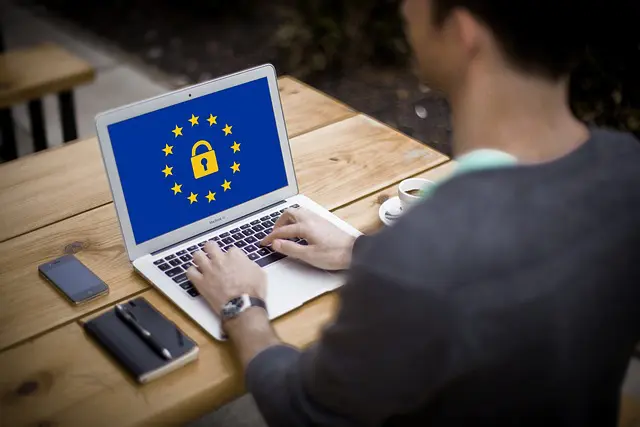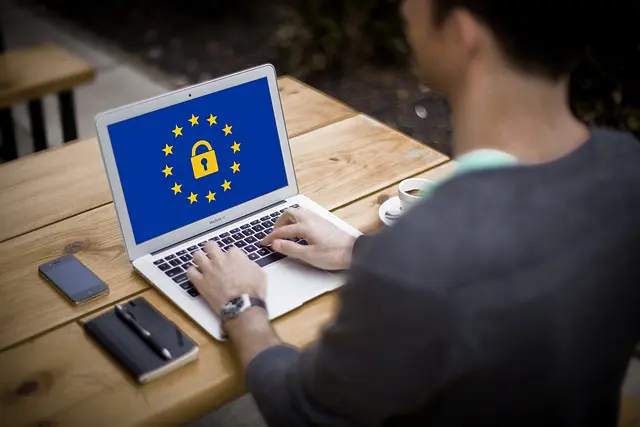Are you waiting for an exchange trip, volunteering, or just a vacation to recharge? Well, now it’s super easy to stay connected on the go. We have access to free WiFi at airports, coffee shops, museums and hotels, of course, not to mention mobile data. Therefore, we are in touch always and everywhere. But this often means that you risk exposing personal data to attackers. You have to protect your data.
In fact, there are many reasons to be careful, as leaking personal data gives scammers a chance to act on your behalf and reach out to your friends. Not to mention the use of your bank accounts.
So how can you protect your data while traveling? Follow the tips below to feel safe, but before we begin, here’s a little piece of advice. Installing the necessary software will require time, but what if you don’t have any? Be sure to rely on custom term papers when the study load is overwhelming. And while the authors are doing their best to complete your tasks, you can finally focus on what needs your attention the most.
1. Remember About Safe Passwords
Of course, the first thing that comes to mind when we think about security is long complex passwords. Using different passwords for all your devices and accounts means fewer worries. Set different passwords for social networks, email accounts and apps you use on an everyday basis.
You can also use your Face ID or biometric data to unlock your device to make it even more difficult for strangers to access it. If your device is stolen while traveling, make sure it’s hard for thieves to access.
2. Rely On Tracking
What happens if you lose your phone? You will probably go to the police and ask them to find it. But is there an easier way? It’s a good idea to set up tracking on your devices so you can see where they are if lost or stolen. If you’re using Apple devices, rely on the Find My system, allowing you to sign in and see where your computer, phone, iPad, or even your Apple Watch was last seen.
You can also delete all data from a device remotely if you think it has fallen into the wrong hands, or leave an on-screen message with your contact details if a device is lost. Pretty useful, right?
3. Avoid Public Wi-Fi To Protect Your Data
We all use free Wi-Fi while traveling because it’s a way to post a photo right away, scroll through your social media feed and keep in touch. But still, we must admit that each coin has two sides. It is through open Wi-Fi networks that criminals collect data from your devices.
Even if you need to use public Wi-Fi while traveling, it’s best to protect your data with a VPN. You can choose any VPN application with different tariff plans and change the location of the place from which you access the network.
4. Use A Personal Wi-Fi Adapter
Public Wi-Fi might ask you to enter personal information to access the internet. But how will this data be used? At the same time, using a private Wi-Fi adapter eliminates a significant number of problems. Less risk, more peace of mind. Plus, if you want to save money in the long run, pick up a local mobile operator.
By the way, many students use an adapter or mobile data to do their homework while traveling. But sometimes it’s hard to get everything done: from sightseeing and meeting new people to submitting an essay before a deadline. But in fact, you just need to ask the best essay writing services for help and get an easy way out of the constant stream of deadlines. Outsourcing is a real magic wand that saves us from stress when traveling.
5. Be Careful With Strangers
Let’s agree, we often ask someone to look after a laptop in a coffee shop or airport. But what if a stranger next to you steals your data? You can never be 100% sure who you trust. So it’s better not to leave your valuables in public places – just buy a big enough bag to be able to always carry them with you.
6. Install Antivirus Programs
Here’s the golden rule of travel – you need to make sure you have quality antivirus software. An up-to-date antivirus program should definitely be installed on all your devices while traveling. It will work invisibly to you and protect you from viruses that enter the system in all sorts of ways. After all, hackers are becoming more and more cunning in their traps. But fortunately, antiviruses are becoming more effective too.
Make sure your antivirus software scans your device on a regular basis. This way, you’ll always be aware of what’s going on. Who will support you when you discover the first cyber threat? Software, of course.
7. Know What To Expect
There are states that are rather ignorant to what data passes through their borders, but others carefully monitor what technologies enter through travelers’ devices. Therefore, read what to expect at the border so as not to be taken by surprise. This way, you won’t be shocked if border control takes your device away for a more thorough investigation. Therefore, always check what data is stored on your devices.
If you’re especially concerned that something might go wrong with your data, remember to back up everything essential to a cloud service.

8. Take Advantage Of HTTPS To Protect Your Data
HTTPS is a security protocol implemented in web browsers. It offers to encrypt your personal information. It protects you from various threats, from account hacking to some forms of censorship. To see if you’re protected, look for a lock icon at the side of the search bar.
9. Turn On Two-Factor Authentication
Two-factor authentication for all your accounts is something you definitely shouldn’t forget. Let the system ask for it when you log into your profiles and applications. Yes, many programs usually offer it at once, but if you forget to set it up, you’re at risk.
To Wrap It Up
We can’t imagine traveling without our devices, as they are necessary for both personal and business contacts. However, we face cyber threats on an everyday basis. But forewarned is forearmed, right? In fact, the above tips aren’t difficult to follow, so use them to protect yourself and then, you will certainly feel super peaceful during all your trip.
Also Read:

1 Comment